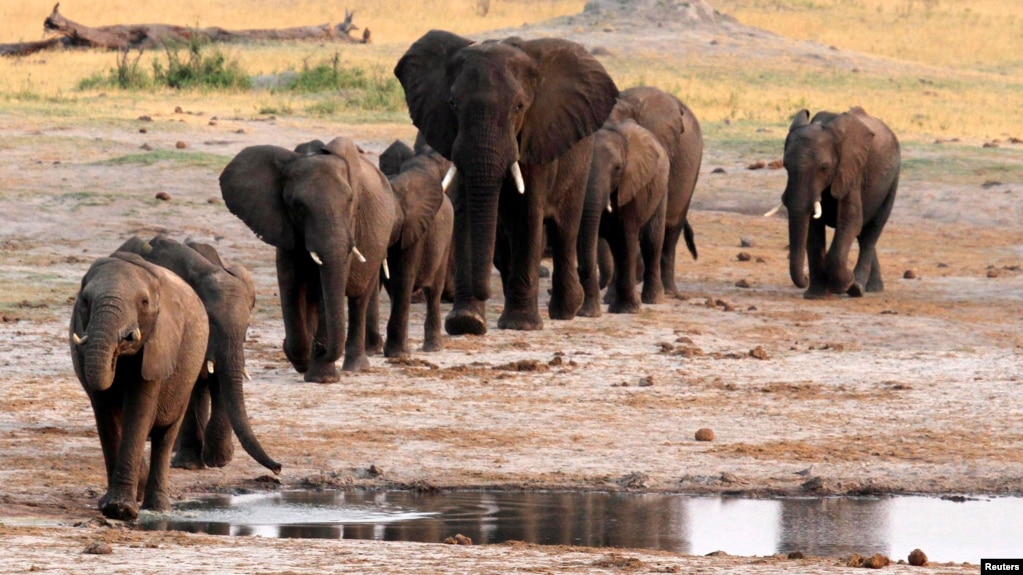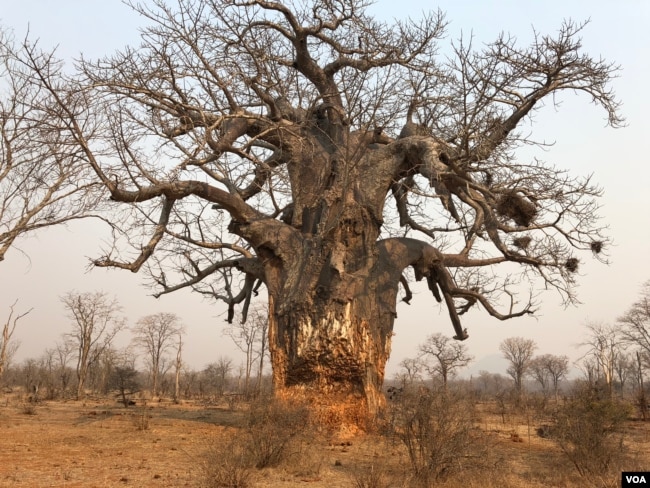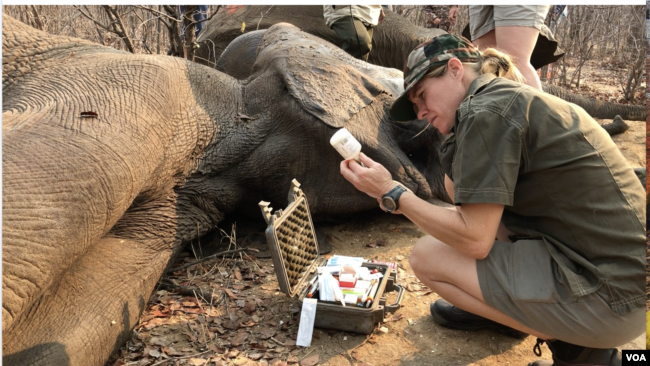Move aims to test if the anti-poaching system in the park is working before authorities relocate the rhinos as well
Source: Zimbabwe Relocates Elephants to Poacher-ravaged Park – VOA

HARARE — Zimbabwe has moved 100 elephants from a congested conservancy in the south to another park near the border with Zambia. The new conservancy, which offers the elephants more to eat and more room to roam, has been stalked by poachers in the past. But wildlife officials say the poaching is now under control.
The elephants were moved from Save Valley Conservancy in batches to the Rifa Safari Conservancy on the border with Zambia from about mid-year until recently.
They were moved from the Save Valley Conservancy in the southeast because they were eating all of the vegetation.
“We are deforested through elephants,” said Wilfried Pabst from Save Valley Conservancy. “The problem is that they are destroying their own food base, as well as for many other animals — leaf eaters, in particular.”
Pabst said he is excited the elephant population in Save Valley has grown to the point where they have to be moved.
“That is a highlight of conservation, the way it is written in any book,” he said. “I feel utterly elated. It’s a highly emotional moment for me to see that 25 years of sweat and tears have come to this.”
Haunted by poachers
But the elephants’ new home, the Rifa Safari Conservancy, had a problem with poachers in the 1990s and 2000s. Wildlife officials removed the endangered species from the park, but only after a large number of elephants were killed.
Tinashe Farawo, Zimbabwe Wildlife Authority spokesman, said the agency has upped its anti-poaching efforts at Rifa Safari since President Emmerson Mnangagwa came to power in 2017.
“Because of that political will,” he said, “we have also improved in our training of our ranchers. We have also increased our patrols, despite challenges of resources we have. We have managed to do a lot of training for our judiciary. It is important to ensure that if someone is arrested [for poaching], the cases are expeditiously dealt with.”
He said judges now understand the importance of enforcing regulations against poaching and wildlife trafficking.
“The nine-year mandatory, if you are caught with an elephant tusk or some of those endangered species, has helped us a lot,” he added. “It has become a deterrent to would-be poachers. ”
Now, authorities will see if the elephants can attract tourists to this northern part of Zimbabwe. If all goes well, Rifa Safari may take some of the excess rhino population from the Save Valley Conservancy next year.


COMMENTS